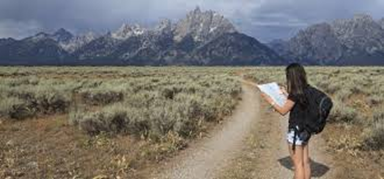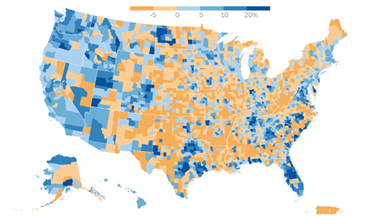Changes in state economy affect education system – By Jasmine Hall, Wyoming News Exchange
As the economic landscape of Wyoming changes, so does one of the most equitable education systems in the country.
The two once supported each other with great success. The oil and mining industry was robust and led to a sustainable distribution of state funding, leaving taxpayers with little responsibility to pay for a quality education.
But consumption of oil, gas and coal has declined, and with that, so has the ability for the Wyoming Legislature to support the nearly $17,000 it spends per student every year. Economic pressures, such as inflation and new market-value costs for teachers, technology and materials, are also eating away at the funds.
And although the bill for education continues to rise, state legislators and politicians no longer want to support an increase in the budget. Within the meetings of the Joint Education Interim Committee and the Select Committee on School Facilities, there are debates as to whether districts are inappropriately distributing their funds, rather than what it truly costs to fully function.

Supply chain woes hit school foodservice departments – By Anna Merod, K-12 Dive
Since August, schools across the U.S. have been missing breakfast and lunch items more frequently due to major supply chain disruptions that have left staff scrambling to replace items and change menus.
On a daily basis, Chesapeake Public Schools in Virginia have had to adjust school cafeteria menus since classes began this year, said Larry Wade, director of school nutrition services for the district of 45 schools and about 40,000 students. The supply chain problems have caused both delivery delays and shortages from food items that never arrive, he added.
Chesapeake students don’t have to worry if they will get a meal at school — but there’s no guarantee they will be served the exact food advertised on the menu for that day, Wade said.
However, if a time comes when there’s not enough food available because of supply chain shortages, Wade said he will considering shopping at Costco or other bulk stores to get what his schools need to feed students. Shopping at bulk grocery stores will more than likely impact the district’s food budget, because items may cost more there than from distributors who put in competitive bids to work with schools, he said.

Census Prompts Push for More Indigenous School Lessons – By Tim Henderson, Pew Trust
Many American Indians and Alaska Natives say the dramatic increase in their numbers recorded in last year’s census supports their longstanding argument that Indigenous history should get more attention in public school classrooms.
Even before the latest tally, there was a growing movement to infuse more Indigenous material into school curriculums—not only to connect students to their roots, but also to ensure that all students know about the contributions of Indigenous peoples and to encourage respect for the sovereign rights of tribes.
Tribes also hope that the addition of millions of people counted as American Indian or Alaska Native in last year’s census will translate into a larger share of public money, such as the $4.8 billion the federal government allocated last year for tribal coronavirus pandemic relief. The federal government based that amount on earlier, lower estimates of the country’s Indigenous population.
Some states, including Oklahoma, Oregon, Washington and Wisconsin, already have taken steps to make Indigenous history and culture a larger part of classroom learning. Now politicians and advocates in other states are doing the same: Connecticut and North Dakota enacted laws this year requiring Indigenous history lessons, while California has pending legislation on the issue.

Parkland school shooting families reach settlement with Broward school district – from CBS News
The families of the 17 people killed in the 2018 Florida high school massacre, most of the wounded and others who were traumatized have reached a $25 million settlement with the Broward County school district in a lawsuit that had accused it of negligence.
David Brill, the families' attorney, confirmed Monday that 52 families from Marjory Stoneman Douglas High in Parkland will be part of the settlement, which was first reported by the South Florida Sun Sentinel. He would not say how much each family will receive, but the families of the 14 students and three staff members killed will get the largest shares. Those will be equal.
The settlement comes after the school district had won a state Supreme Court ruling that could have capped total damages at $300,000 without approval from the Legislature.
"There isn't enough money in existence that would compensate the victims and their families adequately," Brill said in a statement. "But given the circumstances of the case and the fact that the School Board is a sovereign immune entity, the settlement is fair and remarkable, and gives them a modicum of justice and accountability."
The school district declined comment.












